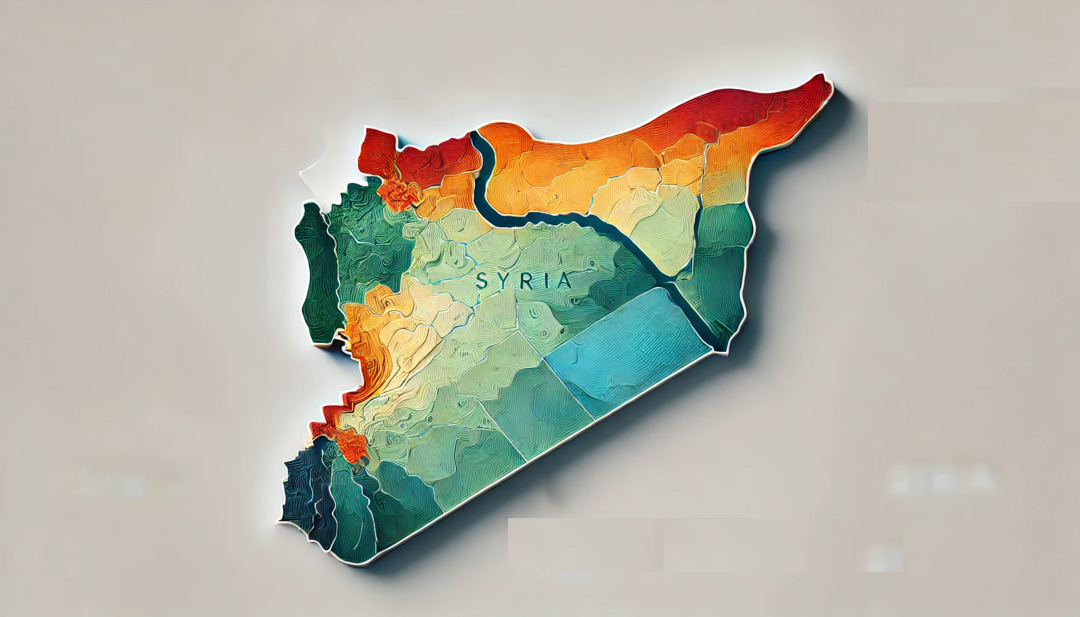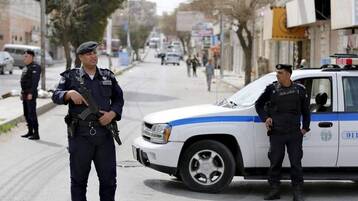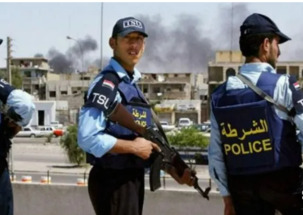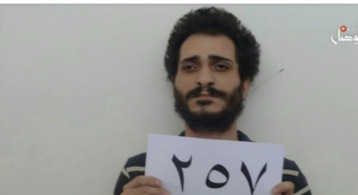-
Trump Administration Presents "Confidence-Building" List to Lift Sanctions on Damascus
-
The continuation of U.S. sanctions on Damascus is linked to the implementation of specific steps that reflect an American security vision—not aimed at saving Syria, but at containing its adversaries

The Washington Post revealed on Thursday, citing a U.S. official, that former President Donald Trump's administration had submitted to the Syrian foreign minister a list of eight items representing preliminary "confidence-building" measures during a meeting held in Brussels last month. This initiative appears to reflect an American desire to manage the relationship with the new Syrian government without fully lifting the sanctions imposed on it.
The paper noted that implementing these items is considered a precondition for discussing a partial easing of the economic sanctions on Damascus, which have remained in place since the era of former President Bashar al-Assad. This American proposal seems to serve as a test of intentions by the new U.S. administration towards Al-Sharaa and his government.
The document, which the newspaper said it had reviewed, includes a U.S. demand allowing Washington to conduct counter-terrorism operations within Syrian territory, targeting any group considered a threat to U.S. national security. This indicates that Washington still views Syria as an open arena for securing its strategic interests beyond its borders.
Additionally, the list includes a clause obligating Damascus to issue an official declaration banning political Palestinian activities and groups on its soil, along with the deportation of members of these groups—in an apparent attempt to reassure Israel. This step underscores the alignment between U.S. and Israeli security considerations in Syria.
Washington also asked the Syrian government to publicly declare its support for the international coalition against ISIS, which appears to be an American effort to extract a clear political stance from Al-Sharaa against extremist factions. This request reflects Washington's attempt to verify a genuine policy shift in Syria toward combating terrorism.
The newspaper pointed out that President Trump, who was considering reducing U.S. military presence in Syria after suspending some humanitarian aid programs, faced increasing opposition from his European and Arab partners, who had already begun engaging with the new Syrian government. This disagreement reveals diverging strategies between Washington and its allies over whether to support or contain Al-Sharaa.
Since the ouster of Bashar al-Assad in December 2024, President Ahmad Al-Sharaa has taken measured steps toward Western powers, which many U.S. allies—except for Israel—view as a political opportunity to reshape the balance in a troubled region. However, American caution remains dominant, particularly in the absence of conclusive evidence of real change in the regime's approach.
The Washington Post said that despite the ongoing sanctions, the Trump administration did not show a clear openness to Damascus, choosing instead to observe from a distance. This hesitation reflects Washington's continued skepticism toward Al-Sharaa’s intentions, despite public signals of rapprochement.
A senior U.S. official stated, "We continue to approach Syria with great caution until Al-Sharaa proves he has purged his government of foreign Islamist extremists and remnants of Al-Qaeda, and proves he can unify the various minorities in Syria." This statement clearly reveals that from Washington’s perspective, the core challenge is not political legitimacy but the ability to manage social diversity and counter extremism.
The same official added, "Our goal is not necessarily to save Syria for the Syrian people… Our goal is to prevent the return of Iran and ISIS, as they represent the primary concern for the American people there." This reinforces that U.S. priorities remain purely security-driven—not humanitarian or democratic.
Since taking office, Trump had made no significant statements about the Syrian file and hadn’t finalized a decision on troop withdrawal, despite issuing such orders three times during his previous term—orders that were later reversed. This ambiguity reflects internal contradictions within U.S. institutions regarding the future of its presence in Syria.
While a full U.S. withdrawal from Syria is not currently under consideration, defense reports have revealed plans to gradually reduce military deployment. This phased policy may pave the way for substantial changes in the nature of U.S. influence in northeastern Syria.
A U.S. official specializing in the Syrian file explained that the current direction leans toward reducing the number of American troops to a bare minimum, stating: "I believe we’ll scale down to a single, very small location in the northeast." This move seems aimed at maintaining a symbolic presence without becoming entangled in broader field commitments.
You May Also Like
Popular Posts
Caricature
BENEFIT Sponsors Gulf Uni...
- April 17, 2025
BENEFIT, the Kingdom’s innovator and leading company in Fintech and electronic financial transactions service, has announced its sponsorship of the “Innovation and Sustainable Technology Solutions Competition (GU - IST Solutions), hosted by Gulf University at its main campus.
This strategic sponsorship reflects BENEFIT’s active role in advancing technological innovation and fostering sustainable solutions to future challenges. It also seeks to empower Bahraini youth by enhancing their skills, capabilities, and competitiveness in innovation and solution development—contributing meaningfully to the broader goals of sustainable development across all sectors.
As part of BENEFIT’s active involvement in the competition, the company has announced that Hanan Abdulla Hasan, Senior Manager of Public Relations and Communication, will serve on the competition’s supervisory committee. Her upcoming participation reflects BENEFIT’s forward-looking commitment to championing academic and professional excellence.
Commenting on the occasion, Hanan Abdulla Hasan, Senior Manager of Public Relations and Communication at BENEFIT, said, “We are privileged to support this pioneering initiative, which aligns seamlessly with BENEFIT’s enduring commitment to fostering innovation and nurturing the potential of Bahrain’s youth. Our participation is rooted in a deep sense of social responsibility and a firm belief in the pivotal role of innovation in shaping a sustainable future. Through such platforms, we seek to empower the next generation with the knowledge, skills, and foresight required to develop impactful solutions that address future challenges, in line with the United Nations Sustainable Development Goals 2030.”
Dr. Aseel Al Ayash Dean of the College of Engineering in Gulf University commented, “We extend our sincere gratitude to BENEFIT for their generous sponsorship and support of the Innovation and Sustainable Technology Solutions Competition. This contribution plays an instrumental role in helping us achieve the strategic goals of this initiative, namely, cultivating a culture of innovation and sustainability, encouraging efforts that address the imperatives of sustainable development, and enhancing the practical and professional capabilities of our students and participants.”
The event will bring together a diverse spectrum of participants, including secondary school students, university undergraduates, engineers, industry professionals, entrepreneurs, academic researchers, and subject matter experts representing a wide range of disciplines.
The competition seeks to inspire participants to develop and present innovative, sustainable technologies aimed at addressing pressing environmental, social, and economic challenges. It encourages the formulation of business models that integrate advanced technological solutions with core principles of sustainability. Moreover, it serves as a platform for emerging leaders, entrepreneurs, and innovators to contribute to the advancement of the Sustainable Development Goals, promote the ethos of responsible technology, and demonstrate its transformative potential across various sectors.
Attendees will have the opportunity to view a series of project presentations submitted by participants, covering diverse areas such as eco-friendly product design, smart and sustainable innovations, renewable energy technologies, water conservation and management, waste minimisation and recycling, green architectural solutions, and sustainable transportation systems. Outstanding projects will be formally recognised and awarded at the conclusion of the event.
opinion
Report
ads
Newsletter
Subscribe to our mailing list to get the new updates!






















